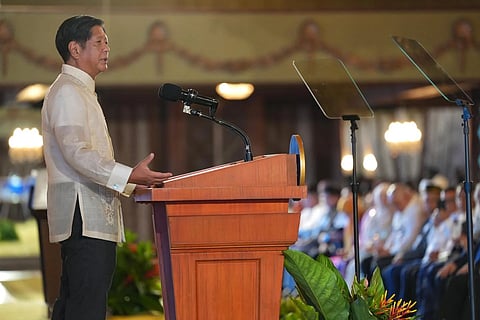
- NEWS
- the EDIT
- COMMENTARY
- BUSINESS
- LIFE
- SHOW
- ACTION
- GLOBAL GOALS
- SNAPS
- DYARYO TIRADA
- MORE

President Ferdinand R. Marcos Jr. has signed into law Republic Act No. 12290, officially establishing the Virology and Vaccine Institute of the Philippines (VIP), a national research center that aims to bolster the country’s capacity to study viruses and develop vaccines and diagnostics against infectious diseases.
Signed on 12 September 2025, the measure is being hailed as a landmark step in fortifying the Philippines’ health security and scientific innovation, especially in the wake of lessons learned from the COVID-19 pandemic.
Under the newly enacted law, the VIP will serve as the country’s lead institution for cutting-edge research on viruses and other pathogens that threaten human, animal, plant, and environmental health.
It will also be tasked with developing homegrown diagnostics, therapeutics, and vaccines, from discovery to pre-clinical testing, to prepare the nation for future outbreaks and public health emergencies.
"The establishment of the Virology and Vaccine Institute marks a transformative step in safeguarding the health of our people and ensuring we are never caught off guard by emerging health threats again," President Marcos said in a statement.
One health, advanced Science
RA 12290 adopts a One Health approach, recognizing the interconnectedness of health across humans, animals, plants, and ecosystems. The VIP will not only address diseases affecting people but will also tackle agricultural and ecological challenges brought by viral pathogens.
To support its ambitious mandate, the VIP will invest in high-level research infrastructure, including high-containment laboratories, genome sequencing facilities, and biobanks. It will also spearhead training programs for Filipino scientists and offer technical assistance to local research communities.
The Institute will collaborate closely with both local and international research institutions and will be overseen by a VIP Board, chaired by the Secretary of Science and Technology, with the Health Secretary and the Agriculture Secretary serving as co-chairs.
The VIP shall submit an annual report to the President and the relevant Congressional Committees by March 30 of each year.
While the Research Institute for Tropical Medicine (RITM) will continue its existing role under the Department of Health, it will work in tandem with the VIP, particularly in disease detection and laboratory support.
Findings and recommendations from the VIP, RITM, and other relevant agencies will feed directly into the strategic planning of bodies like the Inter-Agency Task Force on Emerging Infectious Diseases (IATF-EID) and the National Task Force Against Animal-Borne Diseases, ensuring a more coordinated and robust national health response.
Initially proposed during the height of the COVID-19 crisis, the VIP is envisioned as a key pillar in the country’s long-term health resilience strategy. With its emphasis on scientific excellence and cross-sectoral cooperation, the institute is expected to position the Philippines as a regional leader in virology and vaccine development.
